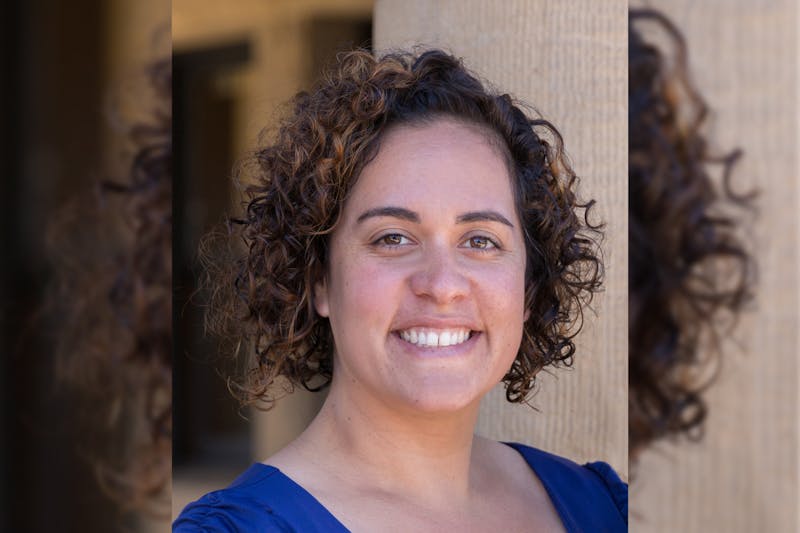
The Graduate School of Education has partnered with the School District of Philadelphia to launch the Pioneering AI in School Systems program.
Credit: Abhiram JuvvadiPenn’s Graduate School of Education is launching the Pioneering AI in School Systems program, which aims to integrate AI into Philadelphia school district classrooms beginning in March 2025.
The PASS initiative, which is being developed in partnership with Catalyst @ Penn GSE and funded by the Marrazzo Family Foundation, aims to equip educators and administrators with the tools and knowledge necessary to integrate AI into schools. The pilot phase will be implemented in select Philadelphia schools and offered free of charge to the district.
“At Penn GSE, we recognize the critical need to prepare a well-trained and well-supported educational workforce,” Penn GSE Dean Katharine Strunk said. “Our goal is to leverage AI to foster creativity and critical thinking among students and develop policies to ensure this technology is used effectively and responsibly.”
Since the emergence of tools like ChatGPT, educators have faced both opportunities and challenges. While AI may save teachers time and help personalize education, concerns about equity, data privacy, and bias remain significant barriers to adoption.
However, PASS offers a structured approach that is designed to address these concerns and promote more impactful learning environments for students. The initiative is a part of a larger shift towards embracing AI: A survey of 1,020 teachers during the 2023-24 school year found that 60% of districts planned to train teachers to use AI.
School District of Philadelphia Superintendent Tony Watlington emphasized the transformative potential of the PASS initiative.
“By equipping educators with the tools and training they need, PASS will ensure students graduate ready for college, careers, and beyond,” Watlington said. “The digital divide is real in Philadelphia, and partnering on the PASS program will help advance academic achievement for our students.”
Jeffrey Marrazzo, co-founder of the Marrazzo Family Foundation, said that AI will not only help educators think more creatively about their approach, but also enhance the learning of students and prepare them for their future careers.
“We are excited to see what emerges from this pilot — it can be taken in so many directions, all of which will amplify the creativity in our classrooms,” Marrazzo said.
Strunk also looks forward to the integration of AI into classrooms through the PASS initiative, and she believes that it will help address the “digital divide” in Philadelphia.
“Every student should have the opportunity to develop essential skills to engage with today’s society and shape tomorrow’s world,” Strunk said.
The program’s design includes a three-tiered structure tailored to three different groups: district administrators, school leaders, and educators.
For district administrators, the program will focus on strategic planning and governance, helping them create frameworks for AI integration that comply with educational standards.
School leaders will learn to implement AI tools to support instruction and student engagement, while educators will receive hands-on training to personalize learning and monitor student progress using AI-driven tools.
The PASS initiative aligns with other recent AI-focused efforts by Penn. The university recently announced AI @ Penn, an interdisciplinary initiative to accelerate AI’s potential across academic fields. In the fall of 2025, GSE will also launch the Ivy League’s first education degree in AI — a master’s program in Learning Analytics and Artificial Intelligence.
The Daily Pennsylvanian is an independent, student-run newspaper. Please consider making a donation to support the coverage that shapes the University. Your generosity ensures a future of strong journalism at Penn.
Donate












